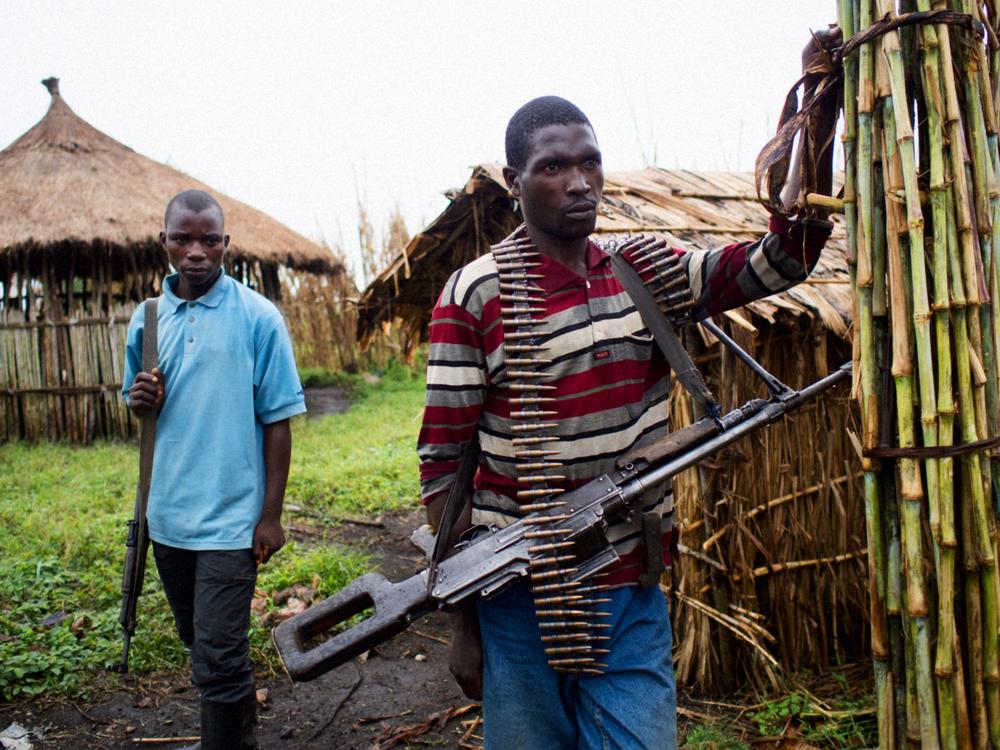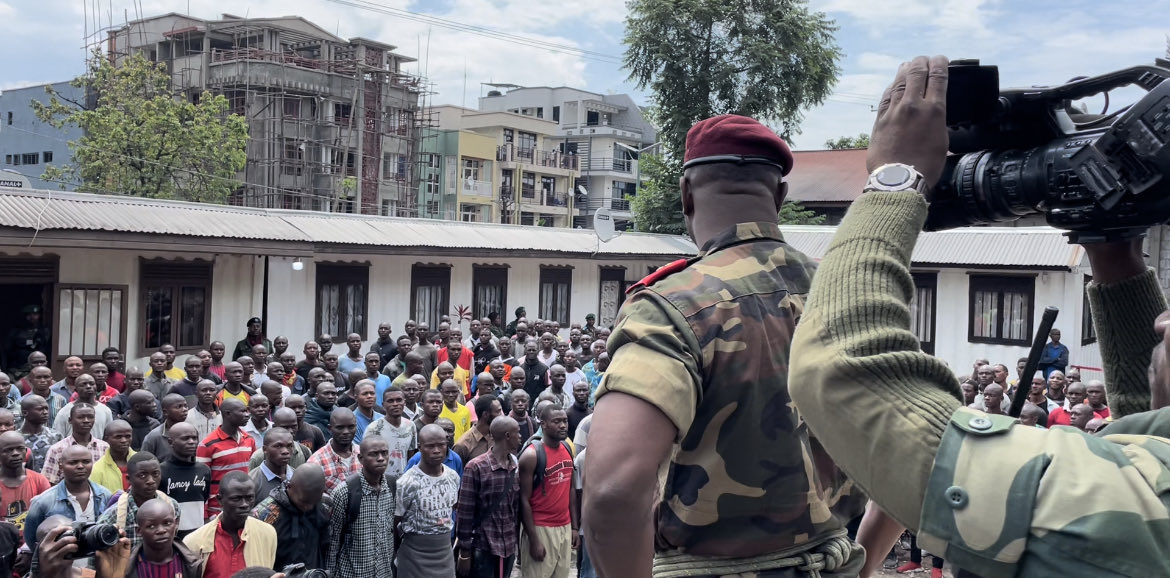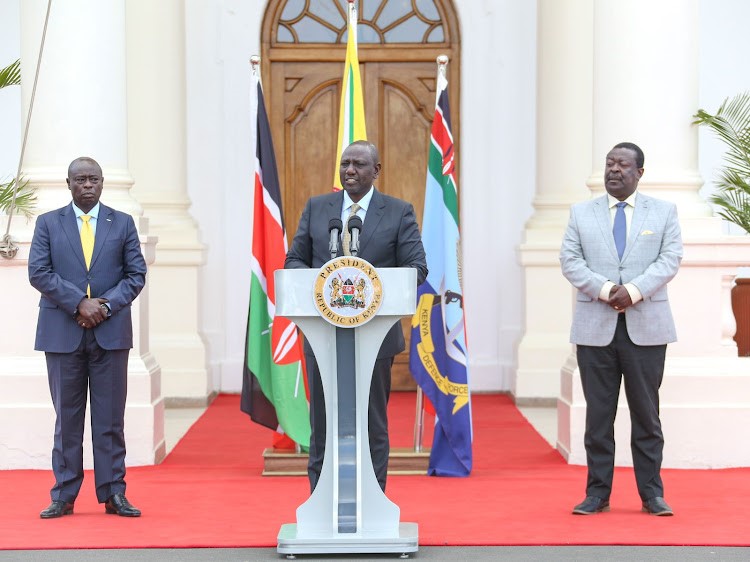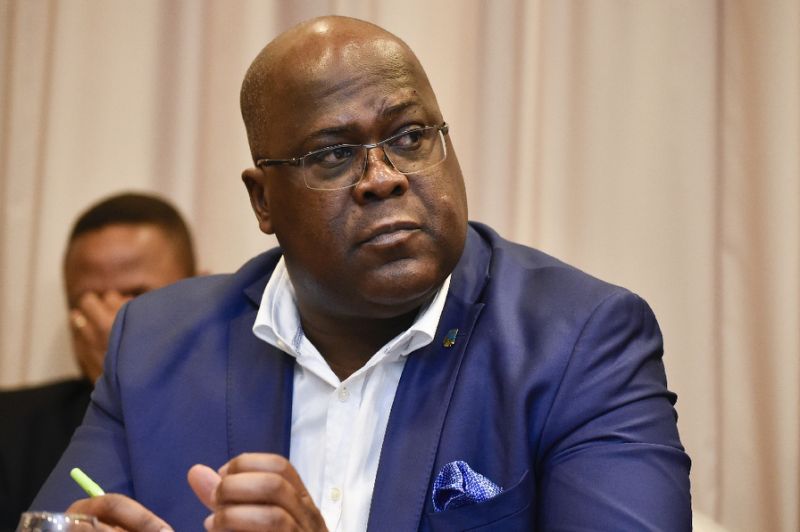Regional
Echoes of Genocide
Does Tshisekedi want Peace or war?
.jpg-20221113062657000000.jpg)
On
the sidelines of the UN Climate Change Conference- COP-27, that took place at
Sharma EL Sheikh, in Egypt, the East African Community (EAC) heads of State
held a high level consultative meeting on the Peace process in the Eastern
Democratic Republic of Congo.
Present
at the meeting that took place on November 7, were presidents of Burundi, Rwanda,
Kenya and Tanzania. The DRC President Felix Tshisekedi was absent, represented
by the Prime Minister Jean-Michel Sama Sam Lukode.
The
meeting reviewed the security situation in North Kivu particularly the
resurgence of violence and called for cessation of hostilities to allow
political negotiations scheduled to begin on November 16, in Nairobi Kenya.
Although
the DRC Prime minister was in agreement with the resolution adopted on
cessation of hostilities, his government did not put it into action.
The following day after the heads of State
meeting, precisely on November 8, the Congolese army FARDC, used jet fighters
and attack helicopters to bombard M23 positions in different places.
In a statement released on the same date, the M23 accused DRC government of maintaining a war option rather than political dialogue. “The DR Congo government does not want peace and maintains its war option, hence trampling the call for dialogues by the United Nations, African Union and the East African Community,” reads the M23 statement.
Over
300, 000 civilians are reported to have been displaced from Rutshuru area by
the war between M23 and FADRC.
On November 7, a Sukhoi-25 fighter jet from the DRC violated Rwanda airspace and briefly touched down at
Rubavu Airport in Western Province. Rwanda’s Ministry of Foreign Affairs
protested the incidence through a note verbale, mentioning that, "these unacceptable incidents are happening when
diplomatic efforts are underway in Luanda, Nairobi and Bujumbura."
Although the DRC government said
that its fighter jet “accidentally” violated
Rwanda's airspace, it was not convincing enough that there was no ill
intention, since Tshisekedi has been chest thumping for a war with Rwanda,
after persistent claims that DRC was attacked by the neighboring country.
A regional security
analyst who talked to this website said that, “after Tshisekedi acquired Sukhoi-25 fighter jets, he believes
he has won the war and he does not need any political negotiations with M23,”
“The violation of Rwanda’s airspace
was like a village boy who has worn shoes for the first time and goes around
showing off by stepping on his piers toes. If Rwanda had responded in equal
measure to the provocation, things would be different now.”
Reliable sources further revealed that
Tshisekedi has hired the Wagner group for mercenary activities against M23.
It should be recalled that in May
this year, the DRC army shelled multiple rockets on Rwandan territory, killing
and injuring civilians as well as destroying property.
On
the part of M23, its leader Bertrand Bisimwa says that they are committed to
dialogue to resolve the crisis, but if the government of Kinshasa chooses war,
it must assume the whole logic of war where, “the strongest wins. As a result
Kinshasa will no longer have to claim withdraw from territories lost.”
Ironically,
Kinshasa says it is no longer thinks of the
possibility of reintegrating the M23 rebels into the national army FARDC,
meaning that political negotiation is not an option.
The
refusal by Tshisekedi’s government to recognize M23 as legitimate Congolese but
instead brand them as “terrorists” will complicate the peace process and
prolong the war and suffering of the people in eastern DRC.
DRC
government leaders, civil society actors and security officials are involved in
hate speech and incitement to discrimination, hostility and violence against
Kinyarwanda speaking Congolese. People with Tutsi faces are harassed and others
killed in broad light.
Tshisekedi early this month ordered the army commander to
establish military recruitment facilities across the country, an act that
demonstrates preparation for war rather than embracing the peace process.
In his address to the nation on November 3, Tshisekedi said
that, “the war imposed on us by our neighbours (Rwanda) demands sacrifice from
each of us. It’s time to silence our political differences to defend all
together our motherland.”
With presidential elections around the corner in 2023,
Tshisekedi is using Rwanda for self-deception to cover up his political
failures. He is soliciting political support from all Congolese under the
pretext that the country is at war with a foreign country.
The writing is on the wall that Tshisekedi is deceiving the
Congolese people and the international community to gain popular support in the
forthcoming elections.
Tshisekedi has all along been hypocritical in his approach to
the peace process in eastern DRC. While in his speeches and in regional
meetings he accepts to embrace dialogue to find a lasting solution, in practice
he does the opposite.
The choice by Tshisekedi for war is not likely to solve the
problem. It can only be disastrous for his country and the great lakes region.


.jpg-20221113050043000000.jpg)



